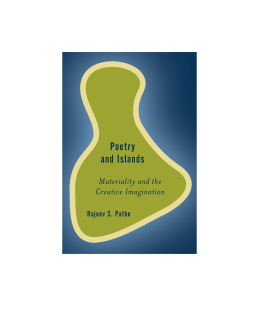
Additional Information
Book Details
Abstract
In all cultures and times, the poetic imagination has fed on the natural attributes of islands. An island is either a destination, or a home, or a place of exile and imprisonment, or simply a place to sojourn. It is an ideal vehicle for journeys treated as allegories, or for acts of finding that turn into acts of losing, or the reverse transformation. An island is not a continent; yet it can be an archipelago. An island is both a place in itself and a pretext for imaginings that need a local habitation and a name. It can give relief, and pleasure; or it can frustrate, isolate, and negate. Above all, it both invites and resists - or contains or constrains - the imagination.
Poetry and Islands explores how islands become repositories of human longings and desires, a locus for some of our deepest fears and fantasies. It balances historical and geographical reference with a selective approach to poems and poets in English, and in translations into English. The study of particular poems in which islands figure in exemplary ways is balanced by a more detailed discussion of the poets who have played a major role in shaping human responses to islands on a global scale.
Clearly conceived, and delivered with elegance, Rajeev Patke’s study adds uniquely to our understanding of island poetries. The treatment of islands as symbols and types is broadened and enriched by a tellingly global reach. Iceland-Greece, Japan and the Caribbean, and Ireland-Taiwan, provide insightful comparative case studies of legacies, poetics, and politics. This is that rare book: an essential read for both specialist and general reader.
Edwin Thumboo, Poet and Director of The Centre for the Arts at the National University of Singapore
Reading the archetypal figures of Crusoe, Caliban, Ravana, and Odysseus in the global archipelagic imagination in relation to three unusual pairs of island poetry—Iceland and Greece, Japan and the Caribbean, Ireland and Taiwan—Poetry and Islands: Materiality and the Creative Imagination is an exemplary work in comparative literature. This masterful study not only sheds light on the manifold significations of islands in world poetry, but also radically challenges our logic of comparison in crosscultural studies. Patke’s new book is encyclopedic in scope, without sacrificing any of the rigor and attention to detail that scholars have long admired in his work. A brilliant tour de force.
Petrus Liu, Associate Professor of Chinese and Comparative Literature and Women’s, Gender and Sexuality Studies at Boston University
Rajeev S. Patke is Professor of English at the National University of Singapore, and Professor of Humanities and Director of the Division of Humanities at Yale-NUS College, Singapore. His publications include ‘The Long Poems of Wallace Stevens: An Interpretative Study’ ( 1985, 2009), ‘Postcolonial Poetry in English’ (2006), ‘The Concise Routledge History of Southeast Asian Writing in English’ (2010) co-authored with Philip Holden, and ‘Modernist Literature and Postcolonial Studies’ (2013). Recent co-edited works include ‘A Historical Companion to Postcolonial Literatures: Continental Europe and its Empires’ (2008), and ‘Southeast Asian Writing in English: A Thematic Anthology’ (2012).
An archipelagic work of comparatist poetics, Poetry and Islands is as wide-ranging as the epic navigations and as attentive to detail as the lyric forms that it maps onto our literary geographies. From the ancient myth of Atlantis to the politics of modern Taiwan, Patke registers the ways in which our imaginative and historical experience is, always already, island life.
Srikanth Reddy, Associate Professor of English at the University of Chicago
This is a navigational tour-de-force through the poetic imagination responding to the fascination islands have held for literal, literary and virtual travellers from time immemorial. Professor Patke’s scholarship has sailed confidently in deep waters and been wide-ranging in mapping the way writers have inscribed their personal take on islands, giving the reader subtle and incisive insights as varied as the writings examined.
Tzu Pheng Lee, Poet and retired Associate Professor in English Literature at the National University of Singapore
Table of Contents
| Section Title | Page | Action | Price |
|---|---|---|---|
| Contents | 9 | ||
| Acknowledgments | 11 | ||
| Chapter One: Introduction | 13 | ||
| 1.1 The Real and the Fictive | 13 | ||
| 1.2 An Outline of Method | 18 | ||
| 1.3 Of Islands in General | 25 | ||
| Chapter Two: Islands as Symbols | 41 | ||
| 2.1 Islands as Figures of Desire and Dread | 41 | ||
| 2.2 Islands Lost and Found: Atlantis and Ithaca | 59 | ||
| 2.3 Islands and the Archipelagic Imagination | 73 | ||
| Chapter Three: Islanders as Types | 89 | ||
| 3.1 Settling an Island: Crusoe | 92 | ||
| 3.2 Demonizing an Island: Rāvana and Caliban | 100 | ||
| 3.3 Returning to an Island: Odysseus | 114 | ||
| Chapter Four: Comparative Case Studies | 127 | ||
| 4.1 Island Legacies: Iceland and Greece | 128 | ||
| 4.2 Island Poetics: Japan and the Caribbean | 136 | ||
| 4.3 Island Politics: Ireland and Taiwan | 149 | ||
| Chapter Five: In Lieu of a Conclusion: Oceania | 165 | ||
| More Water Than Land | 165 | ||
| Bibliography | 175 | ||
| Index | 187 | ||
| About the Author | 197 |
